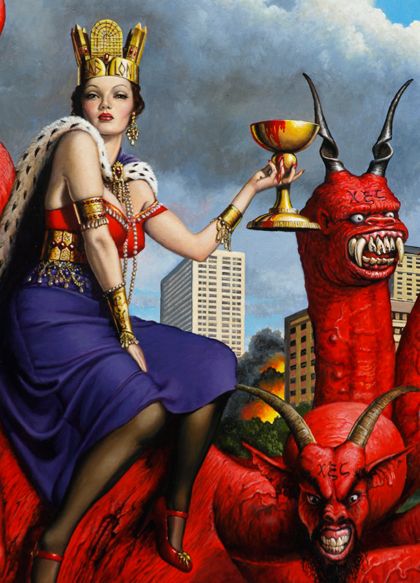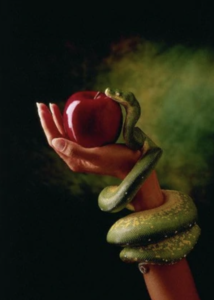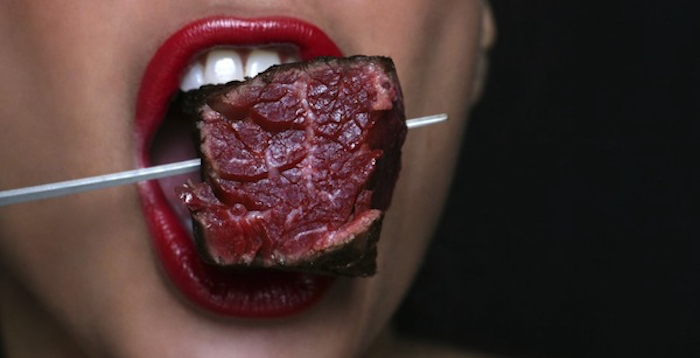What is a Whore?
Most will agree whore is not a complimentary word. Unlike “bitch”, “slut” and “pussy”, all of which were derogatory terms historically, women have not been able to reclaim whore as a way to reduce the efficacy of it and make the word become an empowering mechanism against misogyny.
The Merriam-Webster Dictionary defines a whore as:
Whore Definition:
- somewhat old-fashioned : (derogatory) a person who engages in sexual intercourse for pay: PROSTITUTE;
2 offensive: a promiscuous or immoral woman
3: a male who engages in sexual acts for money
4: a venal or unscrupulous person
In 1976, Pulitzer Prize-winning historian Laurel Thatcher Ulrich penned that “Well behaved women seldom make history.” So it’s no surprise that Mary Magdalene, Cleopatra, Marilyn Monroe, all labeled whores in their own right, have remained notorious historical celebrities.

Despite newly uncovered scripture and the obvious dark skin pigmentation of an entire region, many Catholics will deny until their grave any possibility of Jesus taking Mary Magdalene as his lover but accept without a doubt that the color of his skin was white.
Likewise, although little historical evidence, her salvation from prostitution has been the preferred narrative for future male religious leaders to ratify. (Biblical Archaeology) In the Gospel of John, Jesus appears to Mary Magdalene alone after his resurrection and instructs her to warn the disciples of his return, which sounds closer to date night than penance.
The pattern of remembrance for future female figures who dare make men uncomfortable by deviating from accepted behavior, like Cleopatra and Marilyn Monroe, is manipulated from embodying their power to the grandiose rumor of promiscuity.
At the age of 18, Cleopatra controlled the entire eastern Mediterranean coast, the last great kingdom of any Egyptian ruler. Rather than being documented in history as the sole female of the ancient world to rule alone and influence Western affairs, poet Propertius set the tone of her immortality dubbing her the “Whore Queen.” (NY Times) Marilyn Monroe fell prey to this same treatment and did not survive the harassment of a culture obsessed with sex, victimized since a child by Hollywood’s vicious predatory nature.
This was finally rioted against by the “Me Too” movement, 57 years after her overdose. At the time, the public scrutinized Monroe’s breast and self-autonomy, while alleged lovers like Frank Sinatra, John F. Kennedy, and Marlon Brando received praise for their sexual conquests. (Forbes)

Jesus Christ should have been more specific with those allowed the luxury of judgment: Only evangelicals with the ambition to remain virgins could cast the first stone at Mary Magdalene; Rulers without mistresses to judge Cleopatra’s promiscuity; For men who wouldn’t look up Marilyn Monroe’s dress to criticize her sex appeal.
The etymology of misogyny weaponizes labels intended to suppress female control over their bodies and sexuality. It’s a culture of toxic masculinity that doesn’t desire women to remain abstinent but subordinate.
Whore itself is a euphemism for jargon that has not survived; however, sexism and bigotry transcend not just language but geography, religion, art, and time. The word traces back to the Old English “hore,” directly signifying, “prostitute, harlot.” It boasts a portfolio of definitions from various points throughout history, and in different dialects, including “adulterer, fornicator,” and “physical filth, slime.”
Language molded the use of the word like clay. Tracing back its etymological roots, at one point, it’s origins were used as a synonym for “Christian love,” which explains how “making love” and “fucking” can refer to the same action but contrast so starkly in principle. (Dictionary.com) Whether the term is “bad” or “good” lies in the lips of the beholder.
In Leviticus 21:7, holy men are forbidden from marrying “a prostitute or a woman who has been defiled, neither shall they marry a woman divorced from her husband, for the priest is holy to his God.” In this case, whore is applied to divorcees, sex workers, and sex itself. The label has been more specific to gender than meaning.
That is, until introducing homosexuals, as seen in 1 Kings 14:24: “And there were also male cult prostitutes in the land. They did according to all the abominations of the nations that the Lord drove out before the people of Israel.” As a verb, whored means “to make a whore of; corrupt; debauch,” attributing its marginalization against lifestyles considered corrupted by sin.
Not unrelated, it’s a fascinating phenomenon that human sensory receptors interpret freezing temperatures identically to extreme heat. Likewise, the symptoms of loving and hating someone are often the same. Despite civilization emphasizing the negative connotation, whore is not that different, and exploring the origins will illustrate a contentiously thin line between priesthood and prostitution. In fact, in commemorating figures, such as “The Whore of Babylon” like gods, their power is held to the same pedestal.

The “father of history,” Greek scholar Herodotus, was one of the first classical writers to distinguish the social comparisons and contradictions between the Greek world and the Persian empire, investigating rather than merely recording.
In The Histories, the most prominent fluctuation of all is women’s treatment and their role in society. The tug-of-war between patrilineality and matrilineality is evident, like when comparing tribes of warrior women, “who must kill in battle to be allowed to marry,” to other groups who auctioned off wives like slaves. But the most controversial practice Herodotus identifies is that of “sacred prostitution” in the ancient city of Babylon.
“The most shameful of the Babylonians’ customs is this: Every local woman must sit in the sanctuary of Aphrodite once in life to “mingle” with a foreign man.” In other words, male doctrine forced women into prostitution in the name of godliness, albeit religious leaders use that same blind faith to condemn those that do it voluntarily in the present day. (Irish Times)
Prostitution is defined by engaging in sexual activity in exchange for payment. Historically, “Sacred Prostitution,” other times coined “sacred sex” or “sacred sexual rites” in cases where payment for services was not involved, depicts the practice of using intercourse as a means of satisfying religious expectations. In Babylonia, society demanded women to offer themselves in the temple of worship and succumb to sex with strangers, without the option of rejection, regardless of the amount provided as it then became sacred.
After honoring her godliness, the woman could go home, and “thereafter there is no bribe however great that will get her.” This custom applied to unwed girls’ temporary rite, but female sacred sexual priestesses (lifelong rite) were also protected. They could inherit property from their fathers, collect income from their brothers’ land, and dispose of property. These rights have been described as extraordinary, taking into account the role of women at the time. (Wiki)
Modern society not only teaches children but normalizes the oppression of women into adultery every day in schools, though they whitewash history and call it a dowry. Countless generations passed down the manipulation of language for power like folklore, but forget to mention meaning is man-made. As a phrasal verb, whore out means to “exploit (someone or something) crassly or unscrupulously for personal gain.” (AHD)
Instead of remembering women as survivors (and men as the assailant), history villainizes them for temptation. The Bible doesn’t fight against rape and sex trafficking in all its forms, but it does develop a liking for the usage of “whore” as a feminine adjective.
The Whore of Babylon refers to both a symbolic female figure and a place of evil mentioned in the Book of Revelation. In other words, your body is a temple unless it’s a vagina with a mind of its own. The most catastrophic display of misogyny in all religion lies at the very heart of Christianity, revering the Virgin Mary as the symbol of purity for immaculate conception, birthing the beginning of unrealistic expectations for women. (Good Reads)
Fast forward to the new millennium, and we’ve broken the visible chains but not the system. Just look at the public outrage inspired by Cardi B and Megan thee Stallion’s new song WAP. Two sexually liberated adult women rapping about their bodies and consensual sex, and they are immediately attacked with criticism and demonized.
Conservative pundit Ben Shapiro wrote, “My only real concern is that the women involved — who apparently require a ‘bucket and a mop’ — get the medical care they require.” Fortunately, science supports sexual pleasure. OB-GYN and public health researcher Dr. Daniel Grossman responded, “In my medical opinion, it’s normal — important even — for women to have a WAP. Vaginal lubrication is common & orgasm experience depends on the individual. We should not shame women who have WAP.” (NY Post)

While men have been bragging about making lovers “wet” since the inception of rap, once women own their bodies’ narrative, they are accused of carrying sexually transmitted diseases, a link often made with whore. Not to mention, it’s only the male vocals in the background that sing, “There’s some whores in this house.” The two singers unknowingly revoked their power and fed into the patriarchy that shames them. Cardi B probably considered it a form of irony, but the sex-positive anthem would’ve been groundbreaking with a femme vocal owning it.
Their refrain from personally claiming the title is not coincidental. While progressive women today freed themselves from the burden of caring about male judgment, it doesn’t take away the stigma gifted to girls at a young age. Pop culture immortalized the word’s connotation so much through slang that it’s made it nearly impossible for women to wield back control, such as been done with the appropriation of other words, like “bitch” and “pussy,” such as seen in Meredith Brooks – “I’m a bitch I’m a lover,” or the finesse of the legendary girl group, the Pussycat Dolls. Shakespeare alone uses “whore” over 99 times, not including all the other colorful synonyms, setting the foundation for future male poets, which today are called rappers.
Now opposed by feminists as slut-shaming, most won’t remember the first time they encountered some bastardization of the word, but every young girl feels the fear of being accused one. But what does it even mean? Is a whore a person who performs intercourse for payment, has sex before marriage or sleeps with more than five people before turning thirty? Is it your mother, your sister, your lover? Although it lacks a universal definition, there’s a widespread irrational paranoia of being accused as one. But how can you become that which does not exist? It’s like being scared to match the identity of a sexist chameleon.

The tale of Adam and Eve is simple: Two grown, naked adults bite the same forbidden apple, purposefully committing the same sin, but history blamed Eve as the temptress and, unintendedly, the commander. If men collapse helplessly to the influence of female sexuality, doesn’t that make women the figure of authority?
Whether whore can be reappropriated by this generation remains to be seen, but the action begins by empowering its categorization as a form of self-liberation. In devaluing its worth in shame, the usage will inevitably continue evolving on its own.




























